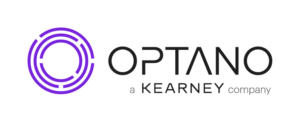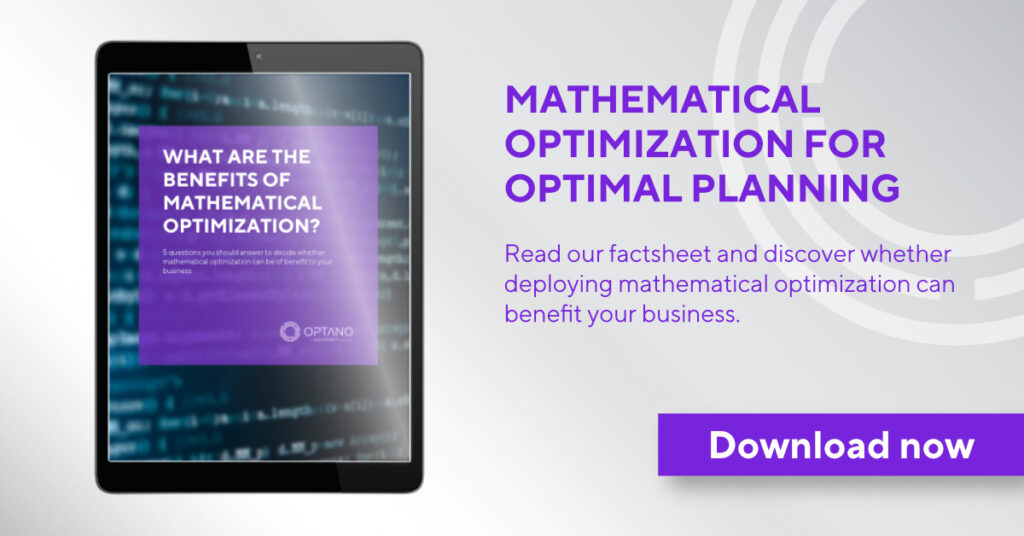Mastering
complex networks
The solution for complex networks
Managing complex networks is challenging – both in production and in distribution. There is often a lack of the necessary transparency to coordinate requirements and capacities in such a way that the availability of goods, delivery times and costs for production, storage and transportation are in an optimal relationship. Another influencing factor is the goal of companies to keep CO2 emissions as low as possible throughout the entire network. As you can see: The challenges of network planning are diverse and the issues are often highly complex.
So how can a network be optimized as a whole to ensure efficiency, availability of goods and sustainability? This is possible with the OPTANO software solution for network optimization. With the help of mathematical decision support and artificial intelligence in user-friendly software, you can identify and leverage hidden potential in your network for the sustainable development of your company’s value.
Networks are complex and cost-intensive. The OPTANO solution for network optimization helps you to master these challenges. We use mathematical decision support and artificial intelligence to find the optimal allocation of requirements, storage locations and transportation options. This allows you to leverage hidden potential and permanently reduce your costs. Get in touch with us!
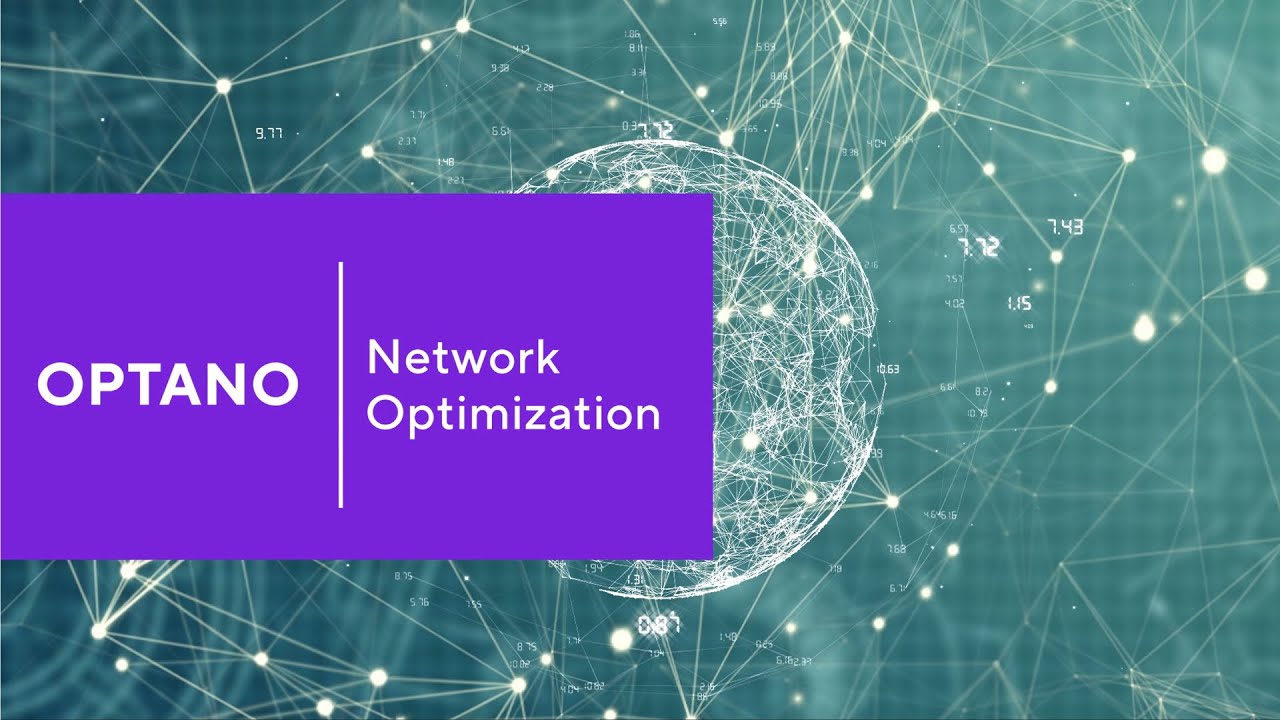
Mit dem Laden des Videos akzeptieren Sie die Datenschutzerklärung von YouTube.
Mehr erfahren
The OPTANO solution for complex networks
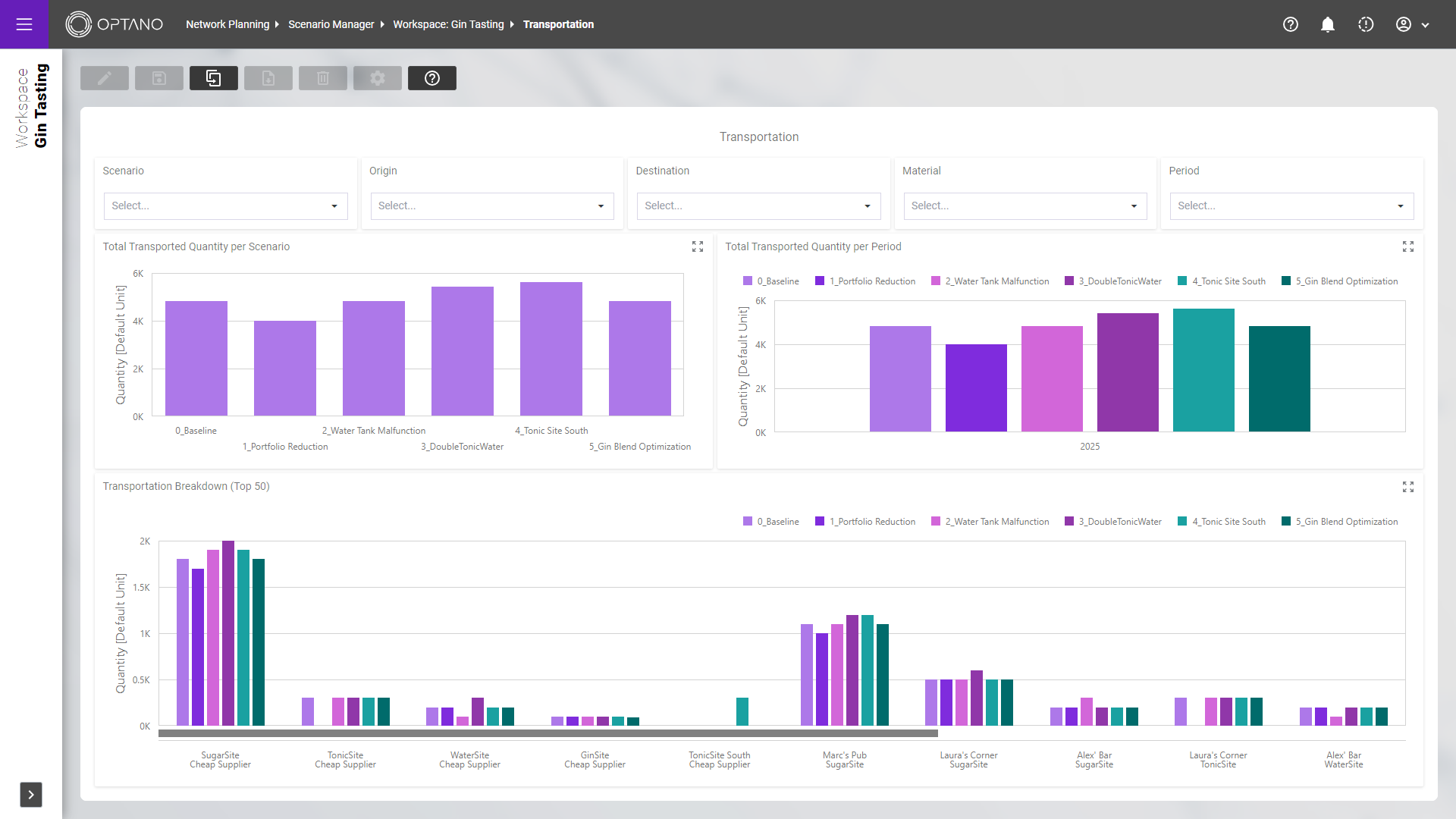
Long-term decisions require foresight. By optimizing your network at the strategic level, you set the course for future and lasting success – be it in making sustainable investment decisions or implementing different procurement strategies.
Examples of strategic planning issues
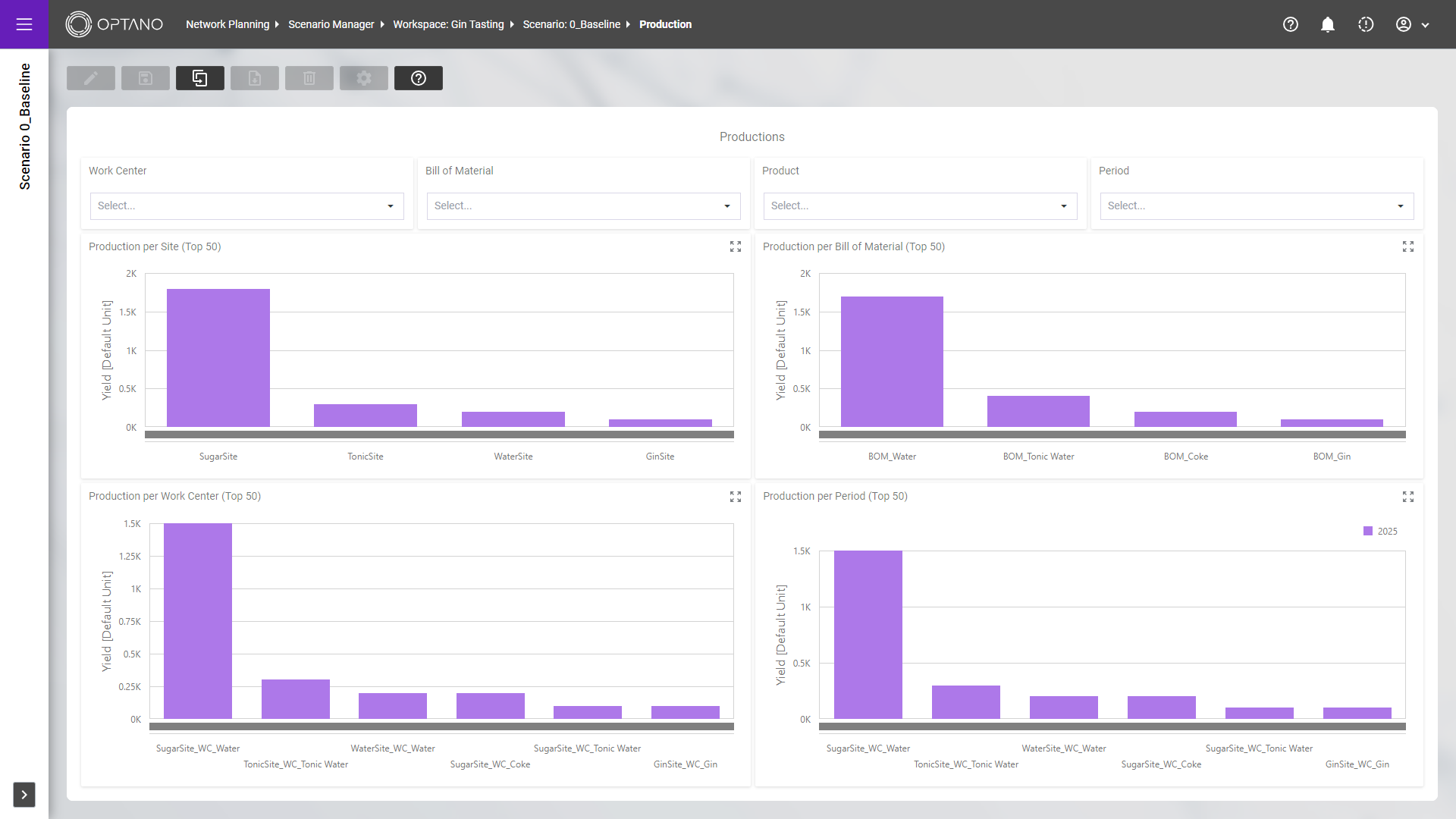
Always keep an eye on your network. At the tactical level, you can distribute real and anticipated demand among the available production capacities and thus ensure maximum capacity utilization at consistently low costs. Uncover hidden optimization potential in production and transport and optimize your supply portfolio with a single tool.
Examples of tactical planning issues
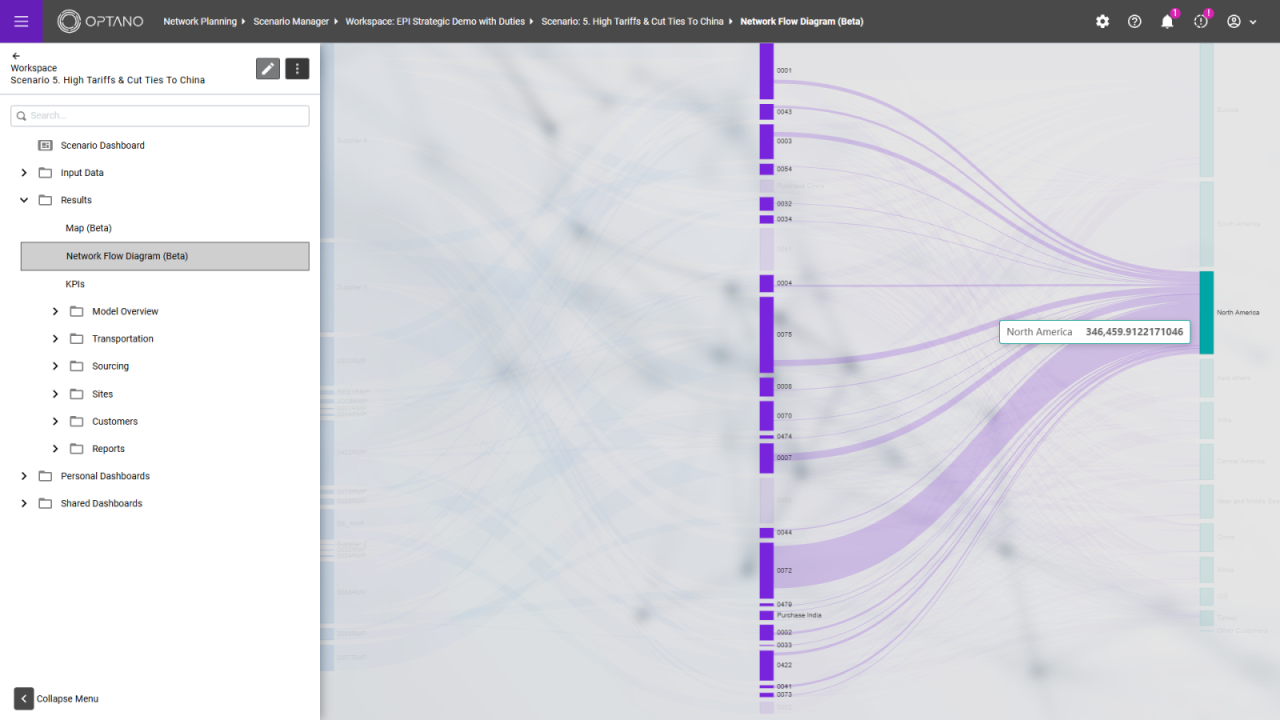
The Distribution Network Optimization feature helps companies plan their distribution network by determining optimal warehouse locations, transportation lanes, and modes (e.g., FTL vs. LTL). It considers key factors such as transport costs and capacities, lead times, storage costs, duties, and routing restrictions. Additionally, it enables multi-echelon flow path optimization, ensuring efficient routing from large distribution centers to regional hubs and customers.
This functionality supports informed decision-making, helping users strategically design their network—whether consolidating or expanding warehouses. It aids in balancing financial performance, service levels, and systemic risk while identifying the most efficient distribution paths to reduce costs.
Reporting examples
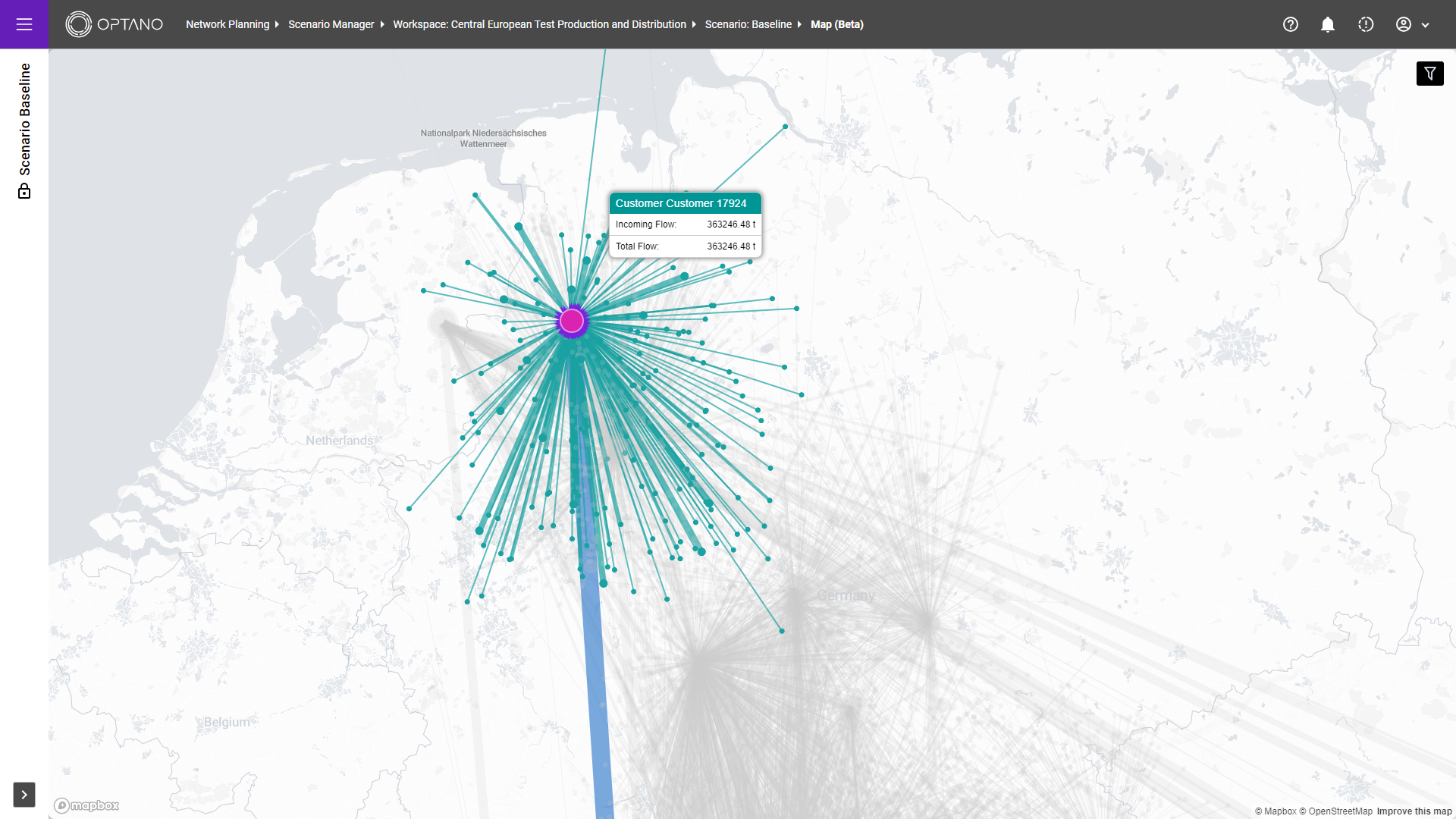
Planning the “last mile” in particular is very challenging. Many influencing factors make the planning detailed and complicated. By choosing the optimal means of transport, the optimal routes and the optimal utilization of vehicles, you can achieve significant efficiency gains in terms of costs and CO2.
Factors in distribution planning
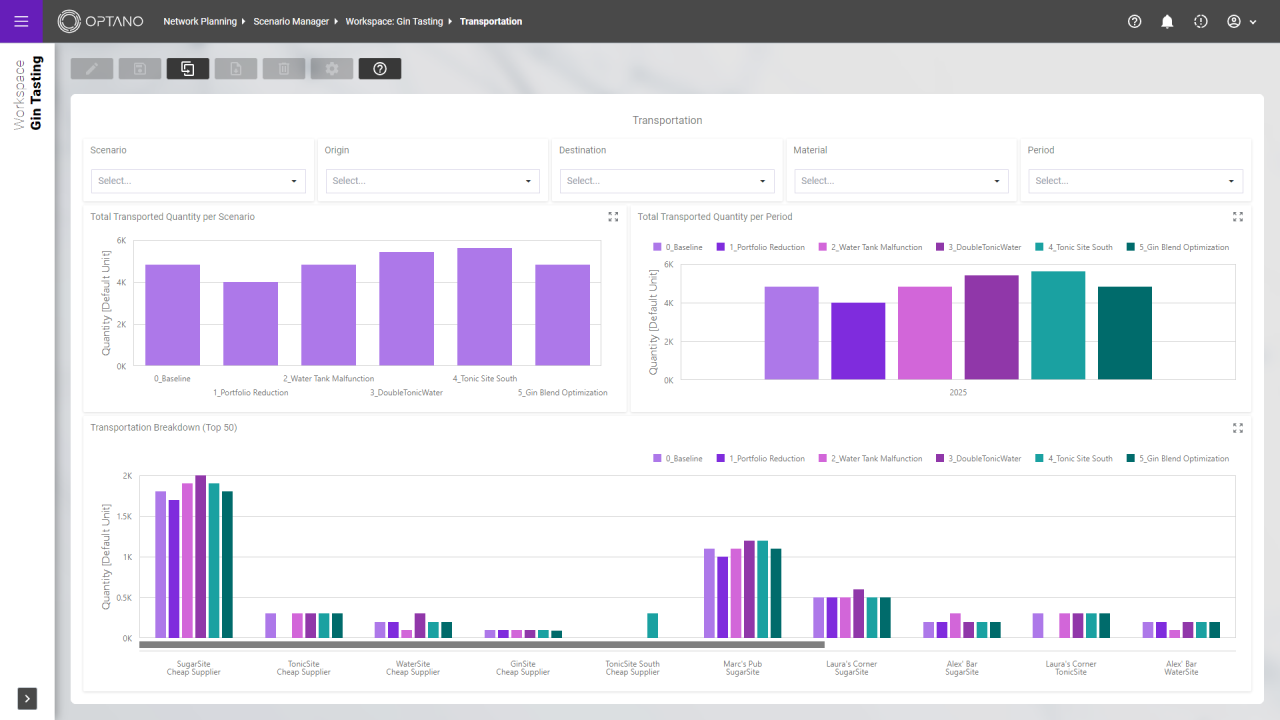
The What-If Scenario Simulation feature allows users to model and analyze different supply chain scenarios by adjusting demand, supply, and production capacity. It assesses the impact of disruptions or policy changes and provides data-driven recommendations for strategic decision-making.
Users benefit from informed decision-making, risk mitigation, and cost optimization, ensuring a resilient and efficient supply chain.
Examples of input data
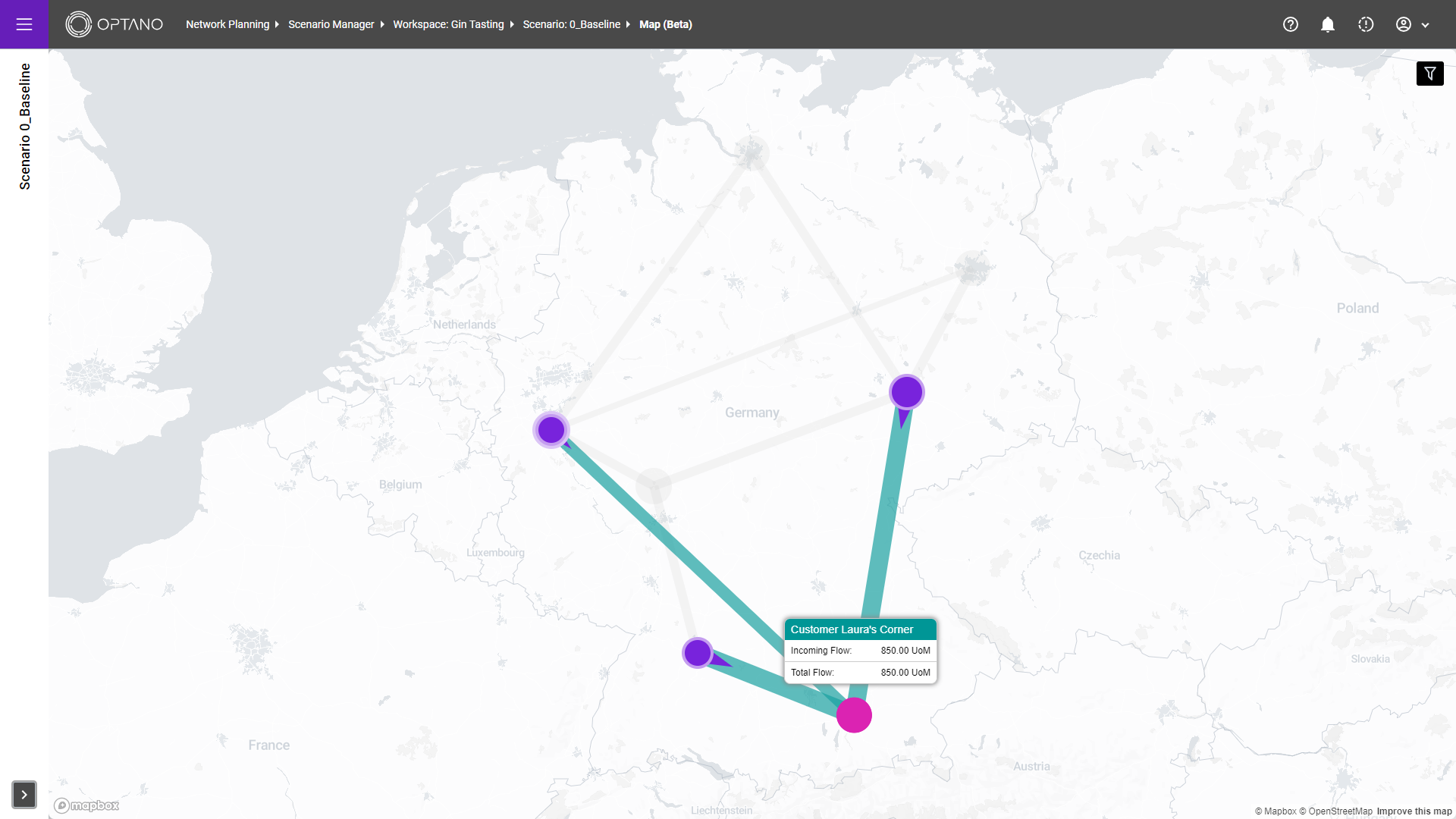
Good preparation turns data into information that offers considerable added value. A wide range of comprehensive analysis options ensure maximum transparency at all levels, right down to material and product level. In this way, complex interdependencies can be uncovered and the various influencing factors within the network can be clearly identified.
Examples of analysis information
Transparency in
the entire network
Reduction of CO2 emissions with simultaneous cost efficiency
More resilience
in the overall network
Systematic margin increase across the portfolio
Customizable
functions
Excellent
UI/UX design
Fast
results
Free choice
of solvers
Release Notes
How can we help you?
You are also welcome to use our contact form. We will then get back to you as soon as possible!
We look forward to talking to you!
